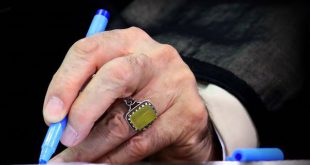This course provides a historical study of the development of Shiʿi Islam against the backdrop of key events such the succession crisis and Occultation (Ghayba), and the formation of Shiʿi states such as the Buwayhids, Safavids, Qajars and Modern Iran.
It will introduce students to various theories and debates regarding the origins and development of Shiʿi Islam through examining primary (in translation) and secondary sources. There will be a specific focus on Shiʿi jurisprudence, theology, hadith and Quranic studies, including the Shiʿi approach to the textual history of the Qur’an and its alleged distortion (tahrif).
The course will also examine contemporary Shiʿi communities around the world. By enabling students to develop a systematic understanding of the evolution of Shiʿi Islam, the course will serve as a basis for more advanced courses.
No previous knowledge of Islam or Arabic is required.
Fall 2017 | Hartford Seminary
Date: Tuesdays, 4:00-6:45 PM
Instructor: Dr. Seyfeddin Kara
Course Objectives:
– By the end of this course, students will have developed an understanding of modern day Shiʿism and the evolution of Shiʿi Islam, appropriate to introductory level.
– It will prepare the students for more advanced and specific modules on Shiʿi Islam.
– Students will have a clear understanding of Shiʿi history, theology, jurisprudence and approach to the Qur’an in comparison to Sunni Islam.
– Students will have an insight into modern Shiʿi communities around the world.
The module will develop key skills such as:
- retrieving and utilizing resources to which they have been directed
- identifying resources on their own initiative
- assessing the suitability and quality of resources
- planning and successful completion of written assignments
- self-organization and time-management
- self-reliance and self-criticism
Inclusive Language:
Hartford Seminary is committed to a policy of inclusion in its academic life and mission. All members of the community are expected to communicate in language that reflects the equality of genders, openness to diverse cultural and theological perspectives, and sensitivity to one another’s images of God.
For more information Click Here.
 Ijtihad Network Being Wise and Faithful Muslim in the Contemporary World
Ijtihad Network Being Wise and Faithful Muslim in the Contemporary World
